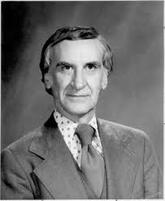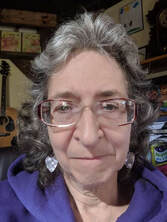 I thought I would start a series of musical memoirs, chronicling my life through music, but then politics reared its ugly head again. That has gotten me thinking about my father who was very proud to be a newspaperman. For me, this meant being gaining an incredible education in history and political science. Dad started out as a cub reporter and photographer at a newspaper in Little Falls, New York then quickly moved to Stamford, Connecticut where he worked his way up through the ranks, city editor then managing editor and finally editor-in-chief. Long before he became editor, he was a political reporter and columnist. My dad was a conservative republican, so the paper, in an effort to be fair and balanced, also had a democratic reporter and columnist. There was definitely a rivalry between these two men that I heard about daily. Dad was very good at his job and worked his way up the ladder fairly quickly. He also had some of his articles and columns picked up nationally on the AP and UPI wires. He even appeared on “Meet the Press” that was filmed in Manhattan. We weren’t sure he would survive that experience. Shy as he was, he almost passed out from the anxiety of appearing on television. Because I grew up in a household where we were surrounded by politics and current events, I was educated in a way that most of my peers were not. My parents were very social and either hosted parties or attended them often, and my brother and I usually tagged along. Most of the men at these social gatherings were lawyers, businessmen and political figures. Everyone believed that the kids should be included in the discussions, if we wanted to be. Like my dad, I was very shy, so I mostly listened, except at home. Then, I argued ferociously for what I thought was right. I rarely agreed with my dad and his cronies when it came to politics – the Viet Nam War, Civil Rights, the Women’s Movement, etc. But there was a tolerance for differing views back then, and I was encouraged to explore my own opinions and to back them up with facts. Today, a lot of my friends see the republicans as the enemy. I still see them as people who believe differently than myself. They are not evil as a group, though some of them may seem individually evil. Nor are the democrats or socialists or communists evil as a group. We are all humans, and like humans, we have our strengths and weaknesses. There is good and bad in all of us. Some of us are more ruled by emotions, some are motivated by money, and the list goes on. I’m sure my dad would not have supported Trump during the last election. Dad was an old school republican and would have been horrified by this president’s behaviors. He believed in a system of government, not in a loose cannon that does what he wants regardless of any advice from his most trusted counselors. Would he have supported this latest attack on Iran? Maybe. I’ll never know, and I wish he were here to ask. He was a brilliant man who, although I didn’t agree with his politics, was fair-minded, respectful and honest. He would have all his facts laid out for me to consider and encouraged me to do the same. It saddens me that I can’t discuss politics with friends who may have opposite views because of the emotional attachments that seem to be so pervasive. I like to know what the other side is thinking, what they believe in. I was raised to want that. When I read the news, I always try to read from more than one point of view. How can I really learn if everything is one-sided? How can we move forward, if we all have our heads in our own sand pile? We may not change each other’s minds, but we can still listen and try to understand. I think this is why we are so polarized. We’ve stopped listening and just keep feeding our anger. I’m sure that ultimately, it all comes out of fear. Unfortunately, the more we hid from diverse knowledge, the more fearful we will become. I remember a time when democrats and republicans worked together in a spirit of compromise and mutual respect. I hope it’s not too late to return to that model. Below is a eulogy written after my dad’s death by one of the many inexperienced reporters that Dad hired, having seen great potential in him as he had in so many others. I'm sorry he isn't here to talk to but I'm glad he didn't see what's become of the politics that he so loved. Editor's note: Roland Blais, who was a political reporter, columnist and eventually editor of The Advocate during the 1960s and '70s, died Nov. 11 in Troy, N.Y. Blais was managing editor in 1978 when Advocate Staff Reporter Anthony R. Dolan won a Pulitzer Prize for special local reporting. Dolan wrote the following as a eulogy for Blais. I knew Roland Blais as a friend but especially as a newspaperman, a title of which he was proud and deservedly so. Like so many others who are today at the top of their profession at the New York Times, Conde Nast Magazines and the Associated Press, I owed my own start in journalism to Roland. All of us will always be grateful for his willingness to take a risk on inexperienced writers who knew little about the newspaper business except that they wanted to be part of it and were willing to learn. And learn we did, as Roland took The Advocate from a small paper of unassuming appearance and limited influence to a modernized operation that not only had that dramatic new technology called the personal computer in its newsroom but actually ran investigative reporting articles in its news pages. As he managed The Advocate's transition, Roland built on his own experience as a reporter and editor and took the paper and its staff to new levels of achievement. Balancing the demands and needs of both the old and young -- by which I mean an 84-year-old publisher and an inexperienced staff -- Roland's tenure saw the transformation of the paper into an enterprise of credibility and impact. All of that credibility and impact would be needed as The Advocate in the mid-1970s began exposing in Stamford a classic matrix of organized crime and municipal corruption. The Advocate would uncover serious corruption in eight city departments, including a police department where a rackets commander was taking $1,800 a week from the Gambino crime family and a detective sergeant was running the largest drug ring in southern Connecticut out of police headquarters. Eventually, 15 city and state officials would resign or be fired; so too police officers, other officials and organized crime figures would be indicted and convicted. Stamford's leading political figure -- who was also state senate majority leader and talked about as the next governor -- would lose his reelection bid and a lawsuit he brought against The Advocate. At the center of all this controversy was Roland; his courage and competence were tested, and he met that challenge. Yet his influence extended well beyond helping to right wrongs in Stamford. In June of 1982 I found myself in the small personal office of Attorney General William French Smith facing a Department of Justice senior staff that had crowded into the room, among them unknown people such as Rudy Giuliani and Kenneth Starr and Theodore Olson. The attorney general asked me to tell them the story of Stamford and The Advocate and this I did, along with presenting a five-point program for a crackdown on organized crime. Out of that meeting came the anti-mob effort President Reagan announced in October 1982. In a few years, organized crime prosecutions quadrupled, and U.S. attorneys everywhere made the attack on the mob a priority. According to the head of the FBI's organized crime squads, a federal government that had been losing the struggle against the syndicates suddenly began holding its own and for the first time winning that struggle. The Los Angeles Times picked up on the role Stamford and The Advocate played and ran a story about The Advocate headlined: "Reporter's Dream Comes True." Yet it was hardly just my dream. At the time I spoke with Roland about what had come of his efforts and those of so many others. He expressed great delight. It was my privilege to visit with him and the staff in Troy and give there a brief talk on investigative reporting. I was given an engraved watch as a keepsake. I wear it proudly and often think of Roland Blais, my friend and newspaperman. So, Roland brought big change to The Advocate and his work made life better for many. Still, he was an unassuming man -- I can still see him sitting as he did in the luncheonette across from The Advocate building having the same meal he had every day. And, as I discovered when we went to New York for one awards ceremony, he was no fan of big cities. Yes, Roland Blais was Smalltown America -- and in the best sense of that term. It is traditional to write the number "30" on newspaper copy to signify the end of the story. But that can't done with Roland's story. He is remembered today as he always will be as a loving husband, father and grandfather. He will be remembered as a good friend and a newspaperman who exposed wrongdoing and stood up for the truth and helped make life safer and freer for countless numbers of people. Most of all, he will be remembered as a man of faith who followed in life the path he so firmly believed God lights for each of us to see us safely home. Today I join in your prayers of gratitude for Roland's life and in your prayers for his safe journey home and for the repose of his soul. Anthony R. Dolan was chief speechwriter at the Reagan White House for eight years and served in the President George W. Bush administration as special adviser in the offices of the secretary of state and the secretary of defense.
0 Comments
 In the fall of 1968, I was a sophomore attending Stamford Catholic High School. In was a tumultuous time in our history with the Viet Nam War, demonstrations and over reactions by the National Guard, assassinations and more. It was also a personally tumultuous and traumatic time for me, being bullied incessantly both at home and at school. Although there was a lot going on in the world and in the country, none of it affected me directly. One morning, I arrived at school and started going about my normal routine when suddenly we were told to stay in our classrooms. Apparently, there was someone on the roof of the building who shot at the office of the disciplinarian. When the police came, they stormed the roof, and the shooter shot himself and died. We weren’t told what was happening at the time, though I remember hearing shots. There was no announcement made, no counseling, no formal acknowledgement that this had happened except for a funeral mass that the entire school attended. I found out all the details when I got home because my dad was the newspaper editor and heard all the news, and my mom also always knew everything that happened in town. Here it is 2019, and I got a whispered phone call from my granddaughter this morning saying, “Nana, can you come and get me? There’s a shooter at the school.” She’s fine and eventually took the bus home where both of her parents were there to meet her. She also had a plan. “Don’t worry, I’m on the first floor and can hop out the window, if I need to.” After I knew she was safe, all of my own old trauma came rushing back. It wasn’t just the incident at my school, it was everything that was happening at that time. There was a general disquiet, and it just felt unsafe, for a long time, for me and for people I knew. Young men were being drafted and sent to Viet Nam where they would come home changed forever or not come home at all. Luckily, my brother was too young at the time, but I knew others who never came back. I’ve known some who made it back alive but were never the same. Riots were happening, and peaceful demonstrations were getting out of control. I’ve lived through “duck and cover” during The Cold War, then the wild and crazy 60s and 70s, the serial killers of the 80s, and plenty of other terrifying events. Now, all these years later, we have to deal with people targeting our children and grandchildren. I have had enough! When will we wise up and make real substantial changes? People are angry, and rightly so. In this modern day and age there are enough resources to ensure that everyone can have a decent lifestyle, but not everyone has that. People are falling further and further into debt. Home lives are stressful because we have to struggle to make ends meet. I have been one of those people that had to struggle just to make rent and put food on the table. I’ve been lucky enough to have the support of my friends and managed to crawl my way out of that extreme poverty, but not everyone has those same resources. Something has to shift, or we will destroy ourselves. We are on that path to self-destruction now, not only with gun violence but with climate change as well. I don’t think it’s too late to turn the tide. Compassion and understanding should be the rule today, if we want lasting change. That has to start at home and in our communities. Everyone of us can do something small in our own community, whether it’s in our neighborhoods, or within our community of friends or family. Everyone of us can be on our phones less and engage in meaningful interactions with the people around us, smile and say hello to the people we pass on the street, compliment parents on their wonderful children, acknowledge the homeless, and the list goes on. Do you use reusable bags when you shop? Bring your own coffee mug? Refuse plastic straws? It’s all of those little things that add up. I always try to remind myself that I can make a difference every day. When I engage that aggravated mom in the grocery store or engage her rambunctious child, I make a difference in that one small moment. Maybe that moment will last for the day, maybe more than one day. When I was visiting someone at Albany County Jail every week for 6 months, I made a difference with the moms and young children waiting in line for over an hour by just playing with the kids or entertaining them with string figures or playing peek-a-boo. Suddenly, the yelling and crying stopped. Everyone there was stressed, and it’s set up to create even more stress. A little compassion and engagement went a long, long way. We can all make a difference.  As I get older, I sometimes complain about aches and pains or more serious health issues and curse the aging process. My friends are doing the same. It’s not easy getting older. However, there are many uncomfortable things that go along with aging that are not talked about because there is still stigma attached. Men and women have their own unique challenges that should be out in the open so that we don’t feel so alone. Women need to be talking about menopause, facial hair, vaginal dryness, incontinence and more. Younger women need to be prepared for their own advance in years. Maybe if they know what’s up ahead, they’ll be more rigid about doing those Kegels. I remember trying to talk with my mother about my menopausal symptoms. Daughters often follow the same patterns as their mothers in reproductive matters. I thought if I knew how she fared, it might help me. She insisted that she never had any problems and just breezed right through it all. Now … I remember when she went through her change, and it didn’t appear to be a breeze to me, but she refused to admit to any discomfort. It didn’t surprise me though. She never really talked with me about anything to do with reproduction. It had always been a taboo subject which led me to make way too many mistakes in figuring things out for myself. Meanwhile, as I slogged through this important change in life, I felt as though I was alone in my misery. My current partner didn’t understand, and I am older than many of my friends who hadn’t yet experienced it. Men also deal with uncomfortable things. They often develop problems with their prostate glands and excess nose and ear hair. There are probably other things that I don’t know about. I wonder if they talk about it at all. Most of them won’t talk with their friends about it but hopefully they’ll talk with their partners. How about their sons or younger male friends? Do young men know that eating cooked tomato is crucial in maintaining prostate health? Are there other things they should know but don’t? We’ve gotten better about health education, but because most of these aging challenges are of a sexual nature or affect our physical appearance, we are reluctant to admit to them. Remember that old saying, “Misery loves company.” Not that it’s all misery, far from it, but it can be difficult and often feels embarrassing. I don’t think it should be embarrassing at all. Everyone has to deal with these things sooner or later, so why hide it? There’s a comfort in knowing that others are coping with similar things. Yes, we experience great challenges as we age, but why should our lives be any less full and enjoyable? Mine will be the best it can be right up until the bitter end. Will there be challenges? Of course. There already are and, the older I get, the more challenges there are. I’ll face each one of them, and I’m willing to share my experiences along the way, if you’ll share yours. I love my gray hair, but the thing that bothers me the most is my aging neck, so I decided to bring it right out in the open. What bothers you? It’s been a while since I’ve posted anything here. The summer got very busy at the end with my birthday, two of my children’s birthdays and the start of a new semester of music classes to organize and teach. After writing about the grueling but adventurous cross-country trip that brought me to upstate New York, I think I needed a break from the Recollections of a Hippie Mama as well.
I get very reflective around my birthday. I often think about the past and where I’ve ended up. Some of you already know that I have spent my life in 20-year increments. My first 20 years were spent growing up in Connecticut with and around my parents. The second 20 years was spent adventuring with my husband, Paul Cavanaugh, who has since passed on. My third 20 years was with Richard Kavanaugh who has also passed on. Now I’m on my fourth 20-year adventure with another wonderful man. It’s easy to look back on past relationships bitterly, if they didn’t work out the way we’d hoped or planned. I’m no different in that regard. I’ve had lots of resentments about the past but have tried hard to look past them. All of my former relationships, including the one with my parents and siblings were difficult, but I had a revelation that they all led me to this wonderful place here and now. Each one taught me something very valuable. My life with my parents taught me to be strong. I always maintained my outspokenness and independence in the face of brutality and harshness. I was so anxious to leave that life behind that it was not hard to decide to sell everything I owned and take off hitchhiking across the country. However, my parents also taught me music, writing, gardening and more. I got so much from them that I didn’t realize until later in my life and, in spite of the hardships, I’m thankful. My husband helped me escape from that first life and was the first person who made me feel loved. He taught me survival techniques on the road, such as sleeping in clothing donation boxes to stay safe and dry. He gave me my three children and stuck around to help raise them in spite of his never-ending wanderlust. After we divorced, he remained my best and one of my oldest friends. He also taught me a lot about music. Although I didn’t start playing string instruments until after we parted, my rhythm guitar playing style comes from listening to him for so many years. The next man in my life taught me how to be a performer. He introduced me to many new styles of music and is responsible for me playing all of the instruments that I now play. He encouraged me to plunge into music full-time and had limitless faith in my abilities, unlike the important people in my past. Because of my time with him, I was able to conquer my debilitating shyness and finally be in the world with complete confidence, which is something I would never have thought possible before. He also came into the relationship with older children and grandchildren with whom I became very close and still cherish. I like to remind myself that even the people who have hurt me teach me important things and have come into my life for a reason. I’m sometimes referred to as a “serial monogamist.” It’s very true. Once you’re in my life, as far as I’m concerned, it’s forever. The relationship may change, but it doesn’t end. I’ve learned to accept all the trials as learning experiences and value every one of them. It seems to me that the science fiction future is approaching faster than I realize sometimes. For example, I’ve read about self-driving cars and seen them in sci-fi movies, but never thought I’d actually be on the road with them. However, they are coming soon. Some predictions have them coming as soon as 2025. To me, that sound like a futuristic date but in reality, it’s just around the corner. They’ve been testing these cars and found a few glitches that have delayed their release and there are a few funny predictions about what will change when they do finally appear on the road. USA Today suggested yesterday that self-driving cars may lead to more sex on the road. https://www.usatoday.com/story/money/cars/2018/11/23/self-driving-cars-could-lead-more-sex-road-study-finds/2090758002/ I’m much more worried about computer failures than what people are doing when they’re not behind the wheel. Then there is the risk to cyber security. Can hackers reprogram your car? I hope I don't have any enemies. https://phys.org/news/2017-02-cybersecurity-self-driving-cars.html
Last week, I had a computer failure in my normal car that caused it to suddenly accelerate while having the brakes fail. I have had more than my share of bad and frightening car experiences, but this topped them all. It’s made me nervous to drive at all, something that I used to love and thrive on. The scariest part wasn’t that the car went from 25 mph to 55 mph in a matter of seconds, or that the brakes failed. The scariest thing was that there was no rhyme or reason to the glitch. The brake failure had happened before leading to multiple trips to the garage where they replaced everything but were still unable to find a reason for it to have happened in the first place. The sudden acceleration was new. Plenty of other people have driven my car, but no one else experienced any of the problems. My well-meaning daughter, who is a science fiction fan, said it sounded like a sci-fi story where the computer bonds to a certain person and is bent on destroying them. Yep, that pretty much sums up how I’ve been feeling about this “demon car.” The mechanic has been driving it everywhere trying to find some kind of pattern, driving at high speed, driving for hours, sudden stops, etc. He finally found a computer sensor failure. The computer told the car to speed up and the brakes to fail simultaneously. I’m glad he found the problem and has assured me that it will be fixed, but do I want to get back into that car? I’m not sure. He said it was a question of whether or not I trust him. I say it’s a question of how much science fiction I’ve read and believe. Can a car bond with a certain person? Can a computer really think for itself? Remember “HAL”? I’ve been driving another car for now, trying to get over my fear of driving. It’s okay, but I really miss my real car. It has its eccentricities, but I know them. It’s an older car but has less mileage than this other one, and my mechanic has replaced almost everything at this point. So, I’m leaning towards trusting him and hoping that not all science fiction comes true, though much of it has. But that takes me back to self-driving cars. If this car was not self-driving and could have killed me due to a computer failure, can’t we count on the same possibility for these other cars? How can they assure us that there will be no glitches or unexplained breakdowns? I don’t think they can. So, once I overcome my fear of driving my 2002 Toyota again, I will someday have to decide if I want to be on the road at all with self-driving cars. What if one of them doesn’t like my car? What if one of them decides to run me off the road? It’s way too creepy a thought for me after this last bizarre experience. |
Archives
January 2024
Categories
All
|


 RSS Feed
RSS Feed